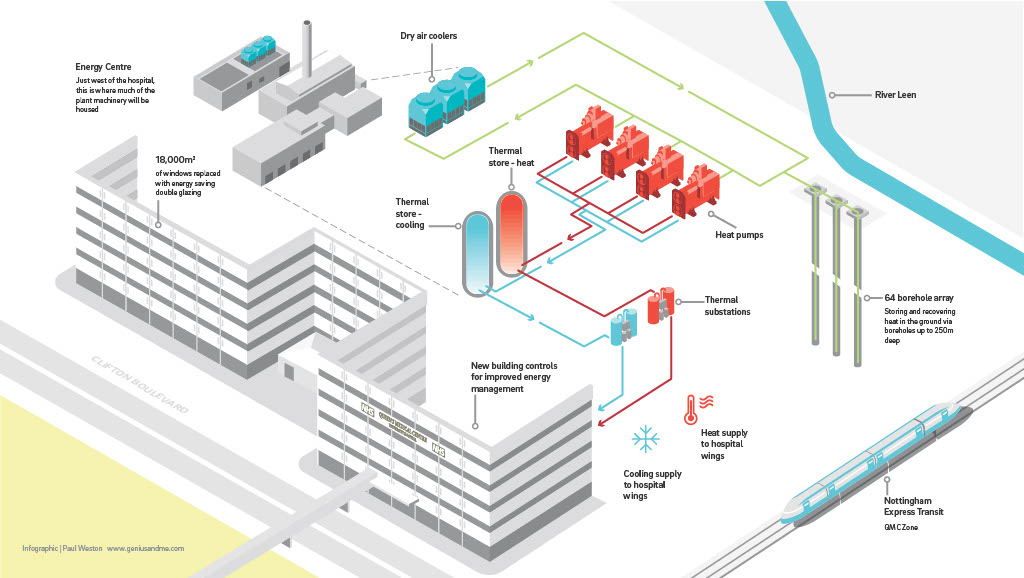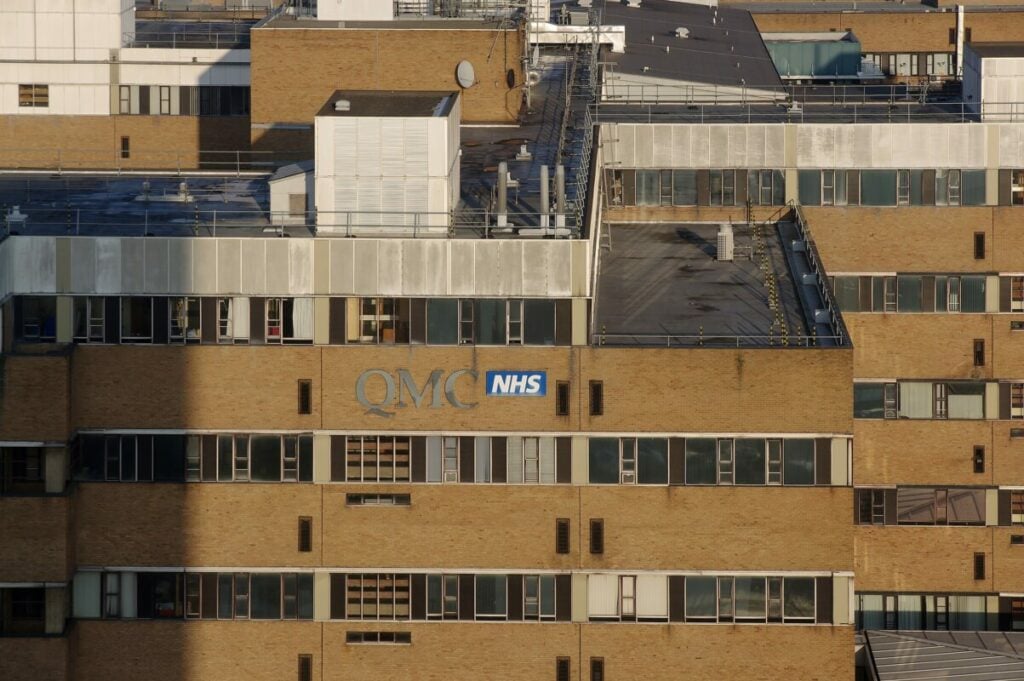Nottingham University Hospitals NHS Trust (NUH) is partnering with E.ON to deliver a 15-year energy efficiency programme that includes a geothermal heating and cooling system.
Work has already begun on the site at Queen’s Medical Centre (QMC) to create the geothermal system and install energy saving windows and smarter building controls like a new building management system run by E.ON Control Solutions.
The geothermal system is expected to cut CO2 emissions by around 10,000 tonnes a year by drawing and storing energy from 64 boreholes each up to 250m below ground, like a large ground source heat pump. The works also involve the replacement of up to 18,000m2 of windows with double glazing.
A new £15 million energy centre will provide heating and cooling to the QMC, and will be built and operated by E.ON. It will house four high-efficiency heat pumps that are both air source and ground source, with 64 boreholes up to 250 metres into the earth.
The total cost of the project is projected to be £64 million, and is expected to cut QMC’s carbon emissions by 10,000 tonnes of CO2 or 30% a year initially, increasing to around 43% once the current gas-fired heating system is decommissioned.

The project is the largest recipient of funding from Phase 3 of the Public Sector Decarbonisation Scheme, initiated by the Department for Energy Security and Net Zero (DESNZ) and delivered by Salix Finance. The Carbon and Energy Fund (CEF) which manages complex energy infrastructure upgrades for the NHS, is helping to facilitate the project.
Anthony May, chief executive of Nottingham University Hospitals NHS Trust, said: “This partnership demonstrates our significant commitment to environmental sustainability and offers a creative solution to meeting our energy needs and tackling climate change, while at the same time improving patient and staff comfort by allowing us to better manage temperatures within our buildings. Innovative projects like these will play a hugely important role in helping us meet our ambitious goal of achieving a net zero carbon operation for heating and cooling system emissions by 2040.”
Chris Norbury, E.ON UK chief executive, said: “We’ve provided a source of heating and cooling to the QMC for many decades with an E.ON energy site in the grounds of the hospital. I’m proud Nottingham University Hospitals are trusting us to build on our successful relationship with this project, clearly demonstrating how working towards net zero can also have a direct benefit for the people who work, visit and stay at the hospital. We’ll be working alongside local companies to bring this to life and deliver a future-proofed energy system for Nottingham and beyond.”
Phase 1 of the energy centre development will install a 4MW heat pump with 2.88MW cooling capacity to support the QMC’s existing gas turbine and standby boilers. In phase 2, the heat pump capacity will increase to 8MW with a further 5.8MW of cooling capacity.






